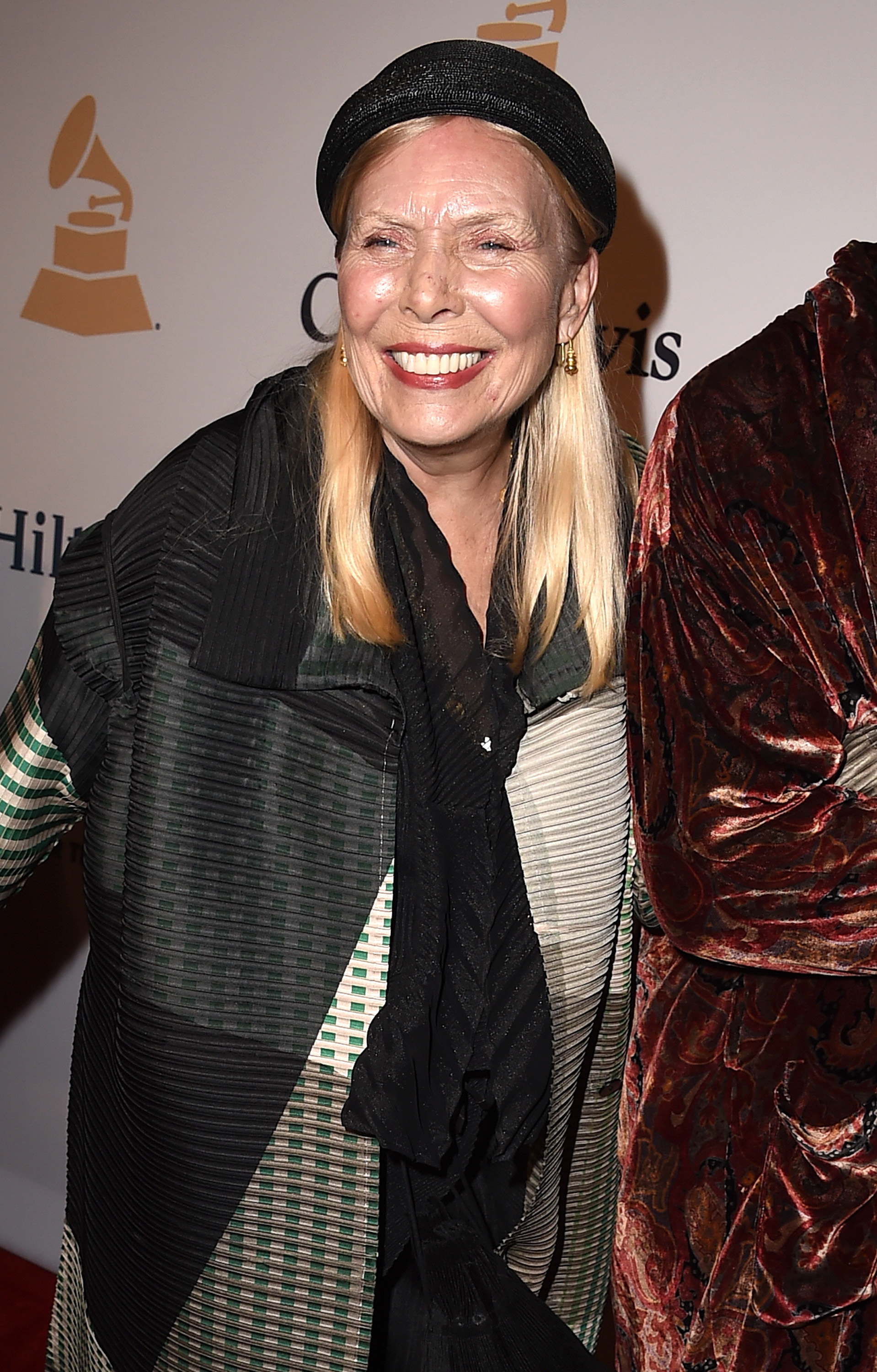
Music fans around the world steeled themselves for tragedy on the evening of March 31 when Joni Mitchell was hospitalized after being found unconscious in her Los Angeles home. Recent updates indicate that Mitchell is doing well and recovering—a tweet from her official account sent early Wednesday morning placed her in intensive care, but “awake and in good spirits”— but still, it provides an opportunity to reflect on the sheer weight of Mitchell’s discography and the breadth of her influence, the tendrils of which snake through the last 40 years of popular music.
Mitchell was born in Canada in 1943 and spent her childhood in rural Saskatchewan, a survivor of a late polio epidemic and passionate about the arts. She moved through Toronto and New York as a young woman and moderately successful songwriter before being discovered by the legendary musician David Crosby in a Florida club. She moved to Los Angeles shortly after and released her debut album, Song to a Seagull, at the age of 25. This marked the beginning of one of the most impressive decades a musician has ever had, one characterized by incredible productivity and spurts of sheer genius. From the stark, largely acoustic folk-pop of her first few records—an approach that climaxed with Blue, a wrenching post-breakup self-examination that stands as her most popular work—to the pioneering, ambitious jazz fusion of The Hissing of Summer Lawns and Hejira, Mitchell forged a new kind of art-pop: lyrics that moved with the delicacy of poetry and challenged both the personal and political; arrangements and melodies that were complex and winding; a voice that cut through unworthy suitors and flimsy sexism like a knife through butter. Alongside contemporaries like Carole King and Carly Simon, she gave voice to musical feminism in an era where women had to fight with tooth and claw for artistic legitimacy. Bob Dylan, Neil Young, Steely Dan: Mitchell hung with them all. In many cases, she beat them to the punch.
Though the light began to fade from her solo work after the ’70s closed—her most notable releases in the years since have been reinterpretations of songs written then, newly colored by age and experience—she was already impacting future generations’ leading lights. Joni Mitchell will live forever as your favorite musician’s favorite musician, a position she’s held since the dawn of the ’80s, impacting superstars and hidden gems alike. Prince called The Hissing of Summer Lawns “the last album [he] loved all the way through,” and quoted Court and Spark hit “Help Me” on “The Ballad of Dorothy Parker”; Björk counts her 1977 double album Don Juan’s Reckless Daughter among her all-time favourites. There are entire musical sub-genres it’s tough to conceive of without Mitchell’s spirit hanging over them, like the spectral freak-folk that flowed out of California in the mid-’00s.
And then there’s Taylor Swift, pop’s reigning titan, a disciple of Mitchell in ways both obvious and subtle. There’s her writing, ripe with reflection but capable of sharp evisceration, and her complete ownership of the music she makes; there’s the album she named Red, her cap tipped to Mitchell’s Blue. There are songs like “Blank Space” where Swift sings about changing herself for a man and getting drunk on jealousy with a surprising, stately, clipped sort of grace.
It can take you back four decades to Mitchell’s “California,” where she asks a partner, “Will you take me as I am? / Strung out on another man?” even as she’s catching sun and drinking wine in Greece. Mitchell asked the question, but the answer didn’t really matter; listeners knew she’d end up fine either way. Swift is the same, walking the trail Mitchell blazed.
More Must-Reads From TIME
- The 100 Most Influential People of 2024
- Coco Gauff Is Playing for Herself Now
- Scenes From Pro-Palestinian Encampments Across U.S. Universities
- 6 Compliments That Land Every Time
- If You're Dating Right Now , You're Brave: Column
- The AI That Could Heal a Divided Internet
- Fallout Is a Brilliant Model for the Future of Video Game Adaptations
- Want Weekly Recs on What to Watch, Read, and More? Sign Up for Worth Your Time
Contact us at letters@time.com